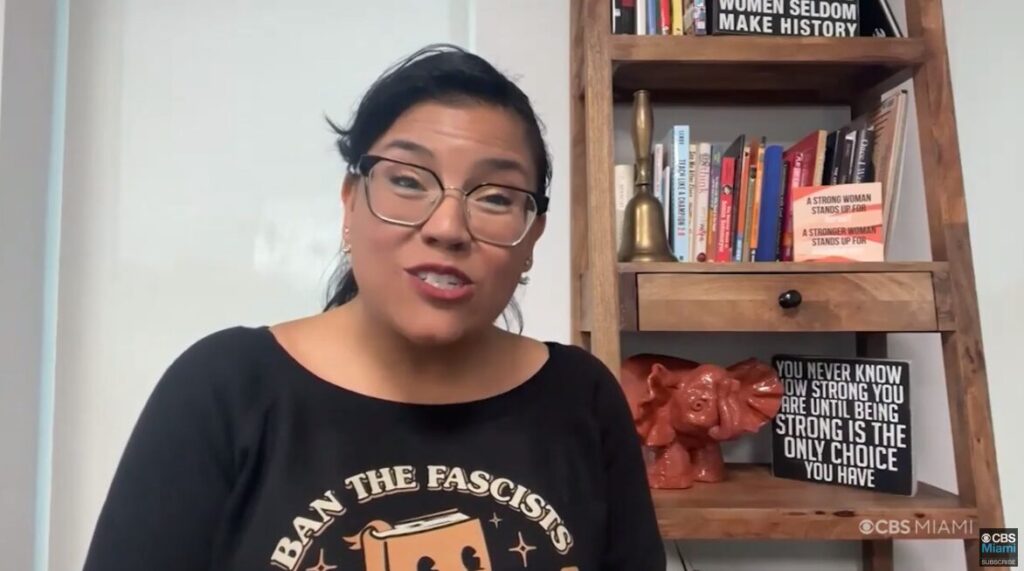Is This Any Way to Run a City’s Schools?
Leaked CTU Proposals Won’t Do Anything to Improve Schools’ Poor Performance

At a time when powerful union bosses around the country are claiming employee support for unionism is sky-high, many ordinary citizens might be surprised to hear about what is now going on with the third largest teacher union local in the United States.
But largely as a consequence of a 2023 Florida statute stripping them of their privilege of having educators’ union dues automatically deducted from their paychecks, this winter top bosses of the Miami-based United Teachers of Dade (UTD) are indeed in danger of being thrown to the curb.
Last May, Gov. Ron DeSantis signed S.B.256, sweeping legislation that featured a pay raise for teachers as well as a number of provisions intended to curtail significantly the unwarranted power teacher and an array of other government union bosses wield over Florida civil servants, despite the Sunshine State’s longstanding Right to Work law.
In addition to barring union bosses from siphoning off dues from employees’ paychecks at taxpayer expense, this law allows union bosses to maintain their status as employees’ monopoly bargaining agents only if 60% or more of the employees over whom they wield control join the union voluntarily.
Unfortunately, rejecting Right to Work leaders’ recommendations, Florida’s GOP lawmakers and Gov. DeSantis opted to exempt, for the most part, police, fire and corrections union officers from S.B.256’s reforms.
Despite these troubling omissions, Right to Work legislative staff helped in the successful fight to pass S.B.256.
“Along with similar legislation enacted with Committee support in Right to Work Kentucky, Arkansas, and Tennessee last year, S.B.256 represents a significant step in the right direction,” explained National Right to Work Vice President John Kalb.
“To protect their special privileges, union lawyers have already tried to use the court system to block enforcement of the Florida, Kentucky and Tennessee measures, but only in Kentucky have they so far gotten significant traction. And an August 2023 court decision striking down the Bluegrass State law is now being appealed.”
Mr. Kalb emphasized that all four statutes leave voluntary union members free to make their own arrangements for dues payments if they genuinely wish to continue bankrolling the union:
“Bans on automatic payroll deduction are intrinsically valuable because they protect individual freedom of choice, but they only have a significant impact on union finances if there are large numbers of employees, veteran or new, who don’t actually think the union deserves their financial support.”
In Miami, UTD union bosses, who have long wielded monopoly-bargaining power over nearly 30,000 teachers and other public K-12 school employees, are now in a precarious position because barely more than half of the employees subject to their control are now voluntarily paying dues to the organization.
There are a host of reasons for educator dissatisfaction with the UTD and other teacher unions, but the intensely political nature of the National Education Association and American Federation of Teachers unions (both of which are UTD parents) is perhaps the most important.
A veteran Miami teacher recently quoted by the New York Post about why she doesn’t support the UTD explained her stance this way:
“We want our union to fight for the basics.
“We’re not getting it, and people are fed up. When you are struggling to buy groceries or you have to deal with fights every 10 minutes at your school, your focus is not on the political issue of the day.”
This year, the Committee hopes to build on its 2023 successes by supporting efforts to rein in government union abuses in a host of other states.
For example, once the Oklahoma Legislature reconvenes soon after this Newsletter edition goes to press in late January, the Committee expects to be pushing for passage of legislation (H.B.1802) completely banning union monopoly bargaining in K-12 public schools and all other state and local government workplaces.
“The fact is that more and more civil servants across the U.S. recognize monopolistic unionism hurts them as well as other taxpayers,” said Mr. Kalb.
“And the Committee is determined to ensure that all such workers have a practicable right not to bankroll a union they don’t want.”
This article was originally published in our monthly newsletter. Go here to access previous newsletter posts.
To support our cause and help end forced unionism, go here to donate.

Leaked CTU Proposals Won’t Do Anything to Improve Schools’ Poor Performance

Wherever Big Labor wields the power to collect forced union dues, union bosses funnel a large share of the confiscated money into efforts to elect and reelect business-bashing politicians. Employment growth tends to lag as a consequence.

Members Insist They Keep Pro-Right to Work Campaign Promises